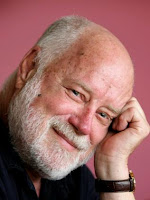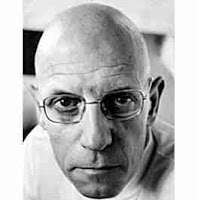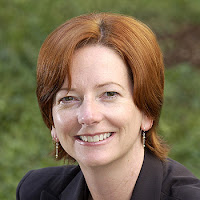I am not at all sure about prayer, and I know I'm not alone in this...
 What is prayer? What and who is it for? Does it get results? I'm not going to really try and answer these questions in this blog post, because I don't know the answers. I know what some of the answers a supposed to be, but they do not always ring true for me. Many answers to the above questions, can in my opinion, be put under the heading of "theological flummery" - a term I have borrowed from Phillip Adams (this week's "outsider") and his Weekend Australian column from a few weeks ago, entitled "Island of the gods".
What is prayer? What and who is it for? Does it get results? I'm not going to really try and answer these questions in this blog post, because I don't know the answers. I know what some of the answers a supposed to be, but they do not always ring true for me. Many answers to the above questions, can in my opinion, be put under the heading of "theological flummery" - a term I have borrowed from Phillip Adams (this week's "outsider") and his Weekend Australian column from a few weeks ago, entitled "Island of the gods". We have had a good week as far as prayers go. My mum has just had an operation to remove a cancer from her brain and hundreds of people across the country and world prayed that this operation would go well, and it did. What role did our prayers play in that? Would the operation not have gone well if people didn't pray? I'm not sure how it all works, but these are the kind of questions that jump into my mind, especially during tough times that draw me into prayer. Don't get me wrong, I was happy to pray in this last week and very happy with the outcome of the process. But... I also know that many prayers prayed by people this week did not get answered favourably, and this is what prompts my questions...
Lately, in a humorous attempt to deal with my own questions about prayer, I've been joking about praying to the "milk bottle" for things. This is a reference to a Youtube video I watched called "the best optical illusion in the world", where the narrator challenges the "thinking Christian" to pray to a milk jug for $1000 and see how it answers. The punchline is that it answers in the same way that God apparently does, with either a "yes", "no" or "wait". It's meant to be serious, but it is kind of funny, peppered with some potentially flawed assumptions about the purpose and nature of prayer and some spurious logic. But the value of videos like this, articles like "Island of the gods" and the convictions of their authors, is that they give serious pray-ers an "outsider's" view into the world of prayer.
They help us to see that most people do not appreciate simple, inadequate answers to the complexities and disappointments of life, and that we should be suspicious of any such simple answers that come our way, as well as those peddling them. They also challenge us to ask questions about the nature and purpose of prayer, and to reject any assumptions about prayer that reduce it to a "Christmas wish list" for our lives (no matter how important the wishes), and consequently, God as "Santa Claus". It is possible that something a little beyond that, and us ,is going on when it comes to prayer.
Life, disappointments, prayer - this is sacred ground. Beware the "theological flummery"...
Shalom
Steve
Life, disappointments, prayer - this is sacred ground. Beware the "theological flummery"...
Shalom
Steve















